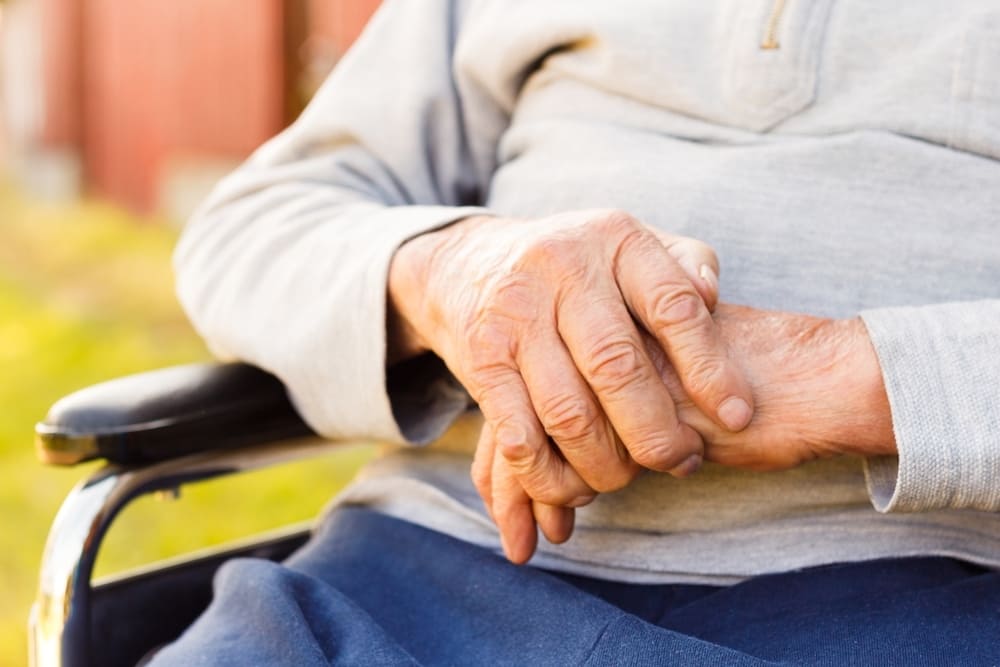Contents:
- Medical Video: Neurology – Ataxia (Gait) – By Wendy Stewart M.D.
- Characteristics and symptoms of multiple system atrophy
- What causes multiple system atrophy?
- Complications of multiple system atrophy
- Treatment of multiple system atrophy patients
Medical Video: Neurology – Ataxia (Gait) – By Wendy Stewart M.D.
Multiple system atrophy (abbreviated MSA) is a nervous system disorder characterized by loss of nervous system function in regulating the body slowly. The onset of MSA occurs when brain and spinal nerve cells die. This condition will get worse, depending on the number of nerve cells that die.
MSA causes a person to have difficulty moving freely. Not only that, MSA is also characterized by a combination of several autonomic nerve disorders which play a role in the body's unconscious function or which is not governed by the brain. Examples of digestion, breathing, and regulation of blood vessels.
MSA is classified as a rare neurological disease and may occur in the elderly (elderly), especially those aged 50 years and over. Symptoms of MSA can appear and develop in a very fast time, namely within a period of five to ten years. MSA can cause disability due to loss of autonomic nerve function and nerves in the limbs so that the patient becomes paralyzed, can only lie on the bed.
Characteristics and symptoms of multiple system atrophy
The condition of MSA is very difficult to recognize since the onset of symptoms. MSA is also difficult to distinguish from Parkinson's disease because the symptoms are very similar. Early symptoms that can occur in MSA sufferers include:
- The body feels stiff and has difficulty moving.
- Coordination disorders such as difficulty grasping and walking.
- Difficulty speaking.
- Having hypotension (low blood pressure) so that you feel dizzy.
- Blood pressure drops when changing positions from sitting to standing or from standing to sitting.
- Disorders in controlling the bladder muscle.
In addition to the above symptoms, MSA can also occur with specific patterns that are divided into two types, namely parkinsonian MSA and cerebellar MSA. Here's the full information.
- Parkinsonian multiple system atrophy (MSA-P) is the most common type of MSA and has symptoms similar to Parkinson's disease. MSA-P is often characterized by the following symptoms.
- Stiff muscles.
- Difficulty folding your arms and legs.
- Slow body movements.
- Tremor (though a bit rare).
- Body posture disorders, such as difficulty standing upright.
- Balance disorders, such as frequent falls.
- Cerebellar multiple system atrophy (MSA-C) is an MSA disorder that occurs due to the death of a portion of brain nerve cells which attacks autonomic nerve cells, triggering the following symptoms.
- Balance disorders.
- Difficulty swallowing.
- Talking disorders.
- Abnormal eye movements.
Unlike Parkinson's disease in the elderly, MSA tends to develop faster. MSA sufferers will need a tool within a few years since the symptoms of MSA appear for the first time. In the development of the disease MSA sufferers can experience the following things.
- The muscles shorten around the joints of the hands and feet so that they have difficulty moving.
- Pisa syndrome, that is the disorder of abnormal posture so that the body tilts to one side like the tower of Pisa.
- Antecollis, that is a disorder that causes the neck to bend forward and head down
- Having depression and anxiety disorders.
- Having a sleep disorder.
What causes multiple system atrophy?
There is no known cause of the emergence of MSA for sure because the cases are rare and occur randomly without certain patterns. Damage to MSA occurs due to the buildup of alpha-synuclein protein in glia, which is a cell that supports the brain's nerves. The buildup also interferes with the process of forming the myelin brain nerve sheath. As a result, the brain's work system is disrupted.
Complications of multiple system atrophy
The development of MSA in each individual is different. However, MSA's condition cannot improve. As disease progresses, the ability to carry out daily activities decreases. Some of the complications that can be caused by MSA include:
- Respiratory disorders, especially when sleeping.
- Injury due to a fall caused by a balance disorder or when losing consciousness (fainting).
- Damage to the skin surface due to the body not moving.
- Difficulty swallowing food.
- Vocal cord paralysis,namely disorders that cause difficulty speaking and breathing.
Usually someone who has an MSA can live about 10 years since the symptoms of MSA were first reported. However, the possibility of survival from MSA varies greatly. Even in certain cases, the patient's life expectancy can reach a dozen years. The fatal impact of MSA is often caused by respiratory problems.
Treatment of multiple system atrophy patients
Until now there is no treatment that can cure or inhibit the development of nerve cell damage due to MSA. Therefore, the treatment provided is only focused on improving the quality of life and comfort of patients.
MSA patients need a variety of specific tools according to their symptoms. Speech difficulties can be overcome by doing speech therapy. While eating disorders can be overcome with a special hose to drain food ingredients. Motion therapy and moving motion aids are needed to reduce the dependence of MSA patients on daily activities.
Furthermore, doctors and nurses will tell you what kind of care the patient needs as time goes by. Patients may also need help from a personal nurse to carry out their daily activities. You must be sensitive in seeing the patient's needs.













